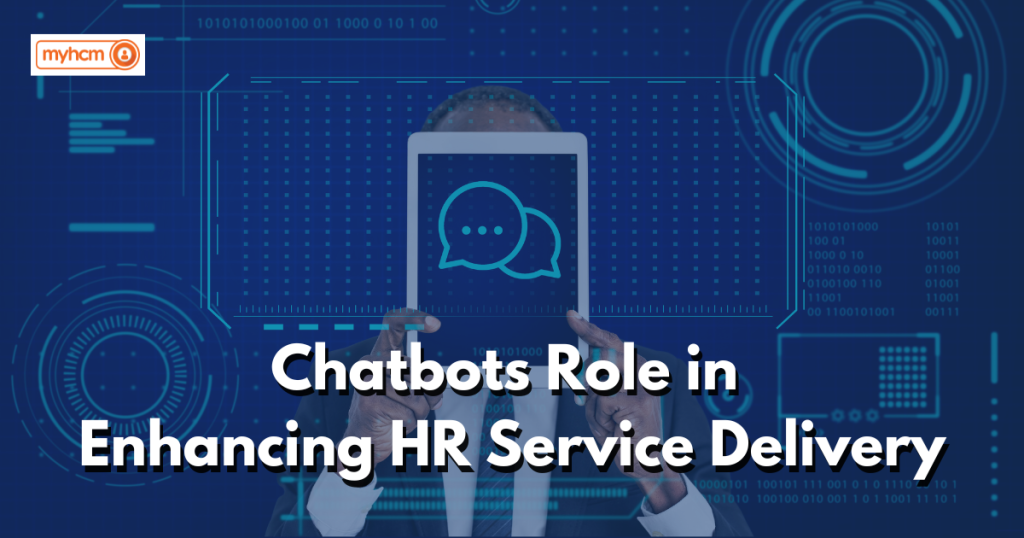The role that chatbots play in enhancing HR services has gained prominence as companies increasingly rely on digital solutions to streamline processes. As HR departments become more strategic, automation and AI technologies, such as chatbots, are transforming how HR teams manage everyday tasks. From answering employee queries to onboarding new hires, chatbots offer various benefits that can improve efficiency and enhance the employee experience. In this article, we will explore the role of chatbots in facilitating HR service delivery, the advantages they offer, and how companies can effectively implement them.
Improving HR Service Delivery with Chatbots
One of the most significant roles of chatbots in HR service delivery is improving efficiency. Traditional HR tasks, such as answering repetitive questions or processing requests, can take up valuable time. By using chatbots, HR teams can automate these routine tasks, allowing HR professionals to focus on more strategic activities.
Chatbots can handle inquiries related to leave balances, payroll status, and company policies, providing employees with quick and accurate answers. The role of chatbots i HR service delivery also involves handling repetitive processes like benefits enrollment or submitting expense reports. This automation frees up time for HR staff, allowing them to work on initiatives that have a greater impact on business growth.
Enhancing Employee Experience Service with Chatbots
Another key role of chatbots in HR service delivery is improving the overall employee experience. Employees expect quick and seamless responses to their HR-related queries, and chatbots are an ideal solution. By providing 24/7 access to HR services, chatbots ensure that employees get instant answers, regardless of their location or time zone.
Additionally, the role of chatbots in HR service delivery extends to personalized support. Chatbots can offer customized responses based on an employee’s profile, making interactions more relevant. For example, a chatbot can provide tailored information about an individual’s vacation days, benefits, or professional development opportunities. This instant, personalized assistance enhances the employee experience, leading to higher satisfaction and engagement.
Supporting the Onboarding Process with Chatbots Service
The role of chatbots in HR service delivery is particularly evident in the onboarding process. Onboarding new employees can be a time-consuming task for HR teams, but chatbots help simplify this process. From answering frequently asked questions about company policies to guiding new hires through initial paperwork, chatbots can automate much of the onboarding journey.
The role of chatbots in HR service delivery during onboarding also includes setting up meetings, reminding new employees of upcoming deadlines, and helping them navigate internal systems. This reduces the administrative burden on HR professionals and ensures that new hires have a smoother, more efficient onboarding experience.
Facilitating Learning and Development with Chatbot Service
The role of chatbots in enhancing HR service delivery also extends to employee learning and development. Many companies struggle to keep their workforce engaged in continuous learning, but chatbots can play a role in promoting development programs. Chatbots can recommend training modules, send reminders for upcoming courses, and answer questions about available learning opportunities.
Additionally, the role of chatbots in HR service delivery can include providing feedback and performance reviews. Employees can interact with chatbots to check their progress, set goals, and receive personalized development advice. This automated support makes it easier for employees to engage with learning opportunities, ensuring their skills stay sharp and aligned with company objectives.
Reducing HR Costs with Chatbot Service
Another important role of chatbots in enhancing HR service delivery is reducing operational costs. By automating routine tasks, chatbots minimize the need for large HR teams to manage everyday queries and processes. This automation leads to cost savings for businesses, allowing them to allocate resources to other critical areas.
The role of chatbots in HR service delivery includes reducing the need for human intervention in tasks like payroll processing, benefits administration, and employee onboarding. Over time, this can lead to significant reductions in labor costs, while also improving the speed and accuracy of HR services.
Data-Driven Decision Making with Chatbot Service
The role of chatbots in enhancing HR service delivery goes beyond automation—chatbots can provide valuable data insights. By analyzing employee interactions, chatbots can identify trends, common concerns, and areas where HR services need improvement. These insights enable HR leaders to make data-driven decisions, enhancing the overall quality of HR service delivery.
For example, the role of chatbots in HR service delivery can involve tracking common employee concerns or questions related to company benefits. By identifying patterns, HR teams can proactively address issues and improve communication efforts. This data-driven approach ensures that HR services are continuously refined to meet employee needs.
Overcoming Challenges in Chatbot Implementation
While the role of chatbots in enhancing HR service delivery is clear, implementing them effectively can come with challenges. Some employees may be hesitant to interact with a chatbot due to concerns about privacy or trust. To overcome these challenges, companies must prioritize transparency in how they collect and use data through chatbots.
Another challenge in realizing the role of chatbots in HR service delivery is ensuring seamless integration with existing HR systems. It’s essential to choose chatbot platforms that can easily integrate with payroll, performance management, and employee benefits systems for a smooth workflow. Providing regular training to HR teams on how to use and manage chatbot technology can also ensure its successful adoption.
Conclusion
The role of chatbots in enhancing HR service delivery is transformative. From improving efficiency to enhancing the employee experience, chatbots are streamlining various HR processes and providing 24/7 access to HR services. As AI technology continues to evolve, chatbots will play an increasingly important role in HR service delivery, helping businesses reduce costs, promote continuous learning, and make data-driven decisions. By leveraging chatbots, companies can ensure their HR departments remain efficient, responsive, and ready to meet the needs of a modern workforce.
